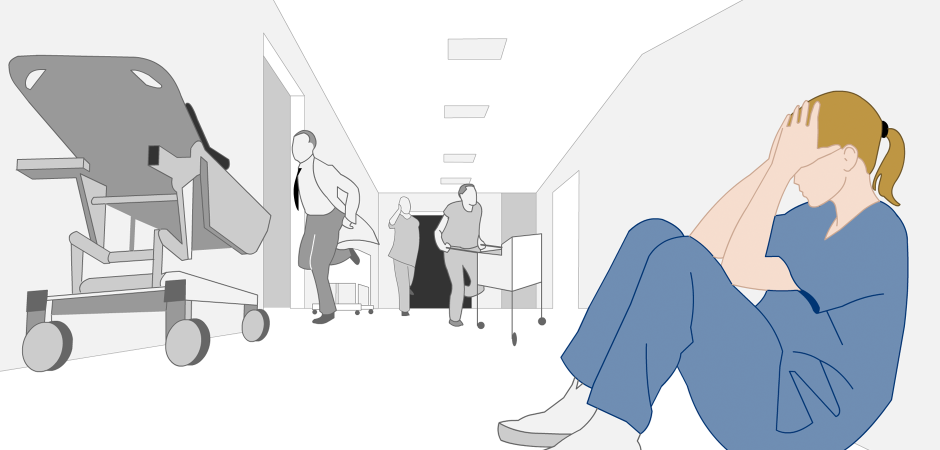
Potsdam Hospital
You are doing your best to help as a nurse here, but everyone is stressed and inefficient, and at the end of the day you feel burned-out and helpless. There is 24 hour coverage of the nuclear destruction of Germany's capital city. Tens of thousands of people are feared dead, hundreds of thousands are injured with severe burns, life–threatening injuries sustained from the shock wave, collapsing buildings and flying debris, and the first cases of acute radiation sickness are being seen in the triage units on the outskirts of the city. More than 3 million people have lost their homes and livelihoods. Public life in the parts of the city that have not been utterly destroyed by the blast has been replaced by large masses of homeless and sick people. Emergency helpers from all over the world have arrived to try to rescue those who can still be helped. Berlin, the once vibrant and exuberant metropolis will never be the same again. You spend nights glued to the television screen, watching in horror the images of the collapsed TV tower at Alexanderplatz, the wasteland that was once the beautiful Tiergarten park and the charred remains of the parliament building. You feel bad that you are not assisting the rescue efforts – but seeing these images, you ask yourself how anything can be done to help at all.

